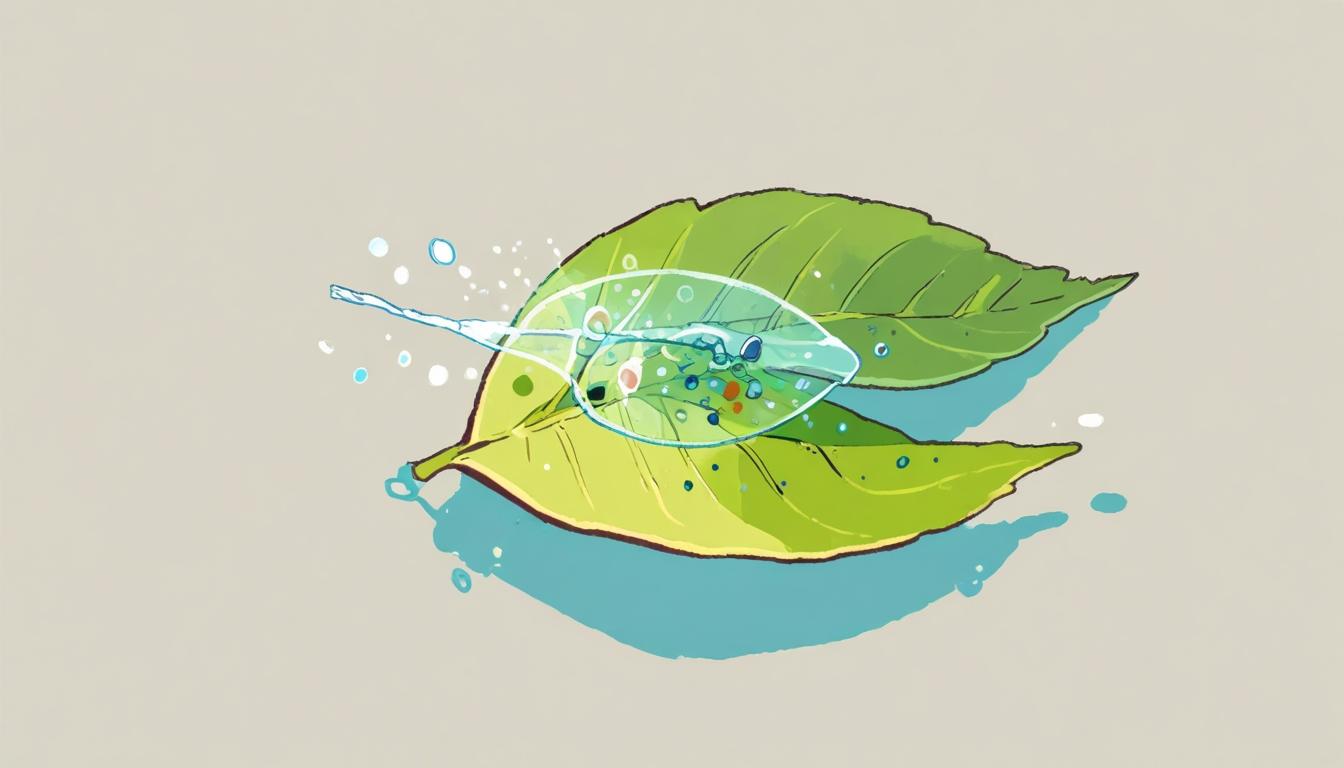Scientists warn the UK trails behind global efforts in combating microplastic pollution, calling for clear targets, stronger regulation, and urgent research to mitigate widespread ecological and human health risks.
The United Kingdom is facing significant challenges in addressing the pervasive issue of microplastics, according to recent statements from scientists, as these pollutants increasingly infiltrate ecosystems, food supplies, and even human bodies. Findings have shown that microplastics are present in various biological tissues, including human testicles and brains. In addition to their alarming prevalence, these tiny particles are reported to disrupt vital processes in plants, hindering their ability to photosynthesise effectively. The potential implications for human health remain largely uncertain, but existing links to serious conditions such as strokes and heart attacks have raised concerns.
Microplastics originate from plastic waste and have infiltrated habitats globally, from the heights of Mount Everest to the depths of the ocean. Human exposure to microplastics primarily occurs through ingestion via food and water, as well as through inhalation.
Experts warn that the UK is lagging behind international efforts, especially those in the European Union and the United States, which have started to implement enforceable targets and regulations concerning microplastics—particularly in wastewater and drinking water. There is a growing call for the UK government to establish a cohesive strategy aimed at reducing microplastic pollution. This includes setting specific targets to mitigate the issue at its source and allocating funding for research to determine safe exposure thresholds while identifying interventions necessary to improve soil and air quality, which are often overlooked.
Dr Antaya March, director of the global plastics policy centre at the University of Portsmouth, articulated the complexities of addressing microplastic pollution, stating, “Microplastic pollution represents a complex, transboundary policy challenge with implications for environmental health, public well-being, and long-term economic resilience. Its diffuse sources and persistence across ecosystems call for a coordinated and forward-looking response.” She emphasised that the emergence of new evidence should not serve as a justification for delaying action, advocating for a national roadmap that aligns with international developments.
Calls for specific actions include creating measurable targets and timelines that the government should follow to address microplastics. Interventions in high-emission sectors, particularly in agriculture, have also been highlighted. There are concerns about sewage sludge containing significant concentrations of microplastics being used as fertiliser, alongside the detrimental effects of plastic-based agricultural mulching which exacerbates soil contamination.
While the UK has banned the use of microbeads in cosmetic products, scientists argue that the recognition and removal of microplastics should extend far beyond this regulation. They encourage the establishment of design standards for clothing and textiles that would reduce the shedding of microplastics.
Professor Fay Couceiro, from the microplastics research group at the University of Portsmouth, described the situation as an escalating threat with potentially irreversible consequences, stating, “Without decisive action, the UK’s environment and global leadership will be compromised, with potential impacts to public health.” She emphasised the urgent need for a robust and forward-looking policy framework to safeguard environmental integrity, public health, and economic stability.
The Department for Environment, Food and Rural Affairs has been approached for comment regarding these concerns.
Source: Noah Wire Services
- https://www.ft.com/content/8c967c65-aa78-4d21-bdd0-2c561d693c04 – This article discusses a study published in Nature Medicine, which found that microplastics have significantly increased in human brain tissues since 2016, indicating potential health implications.
- https://www.ft.com/content/2433de36-778e-4422-9d56-9fc2d4bcd983 – This piece highlights concerns about microplastics in human arteries, linking their presence to higher risks of strokes, heart attacks, and mortality, though the validity of these studies is questioned.
- https://en.wikipedia.org/wiki/Microplastics – This Wikipedia page provides comprehensive information on microplastics, including their sources, environmental impact, and presence in various ecosystems, supporting the claim of their global infiltration.
- https://en.wikipedia.org/wiki/Plastic_pollution – This article details how microplastics affect soil ecosystems, hindering plant growth and disrupting vital processes like photosynthesis, corroborating the claim about their impact on plants.
- https://en.wikipedia.org/wiki/Microplastics_and_human_health – This page discusses the potential health risks associated with microplastics, including their presence in human tissues and possible links to conditions such as strokes and heart attacks.
- https://en.wikipedia.org/wiki/Marine_plastic_pollution – This article covers the global distribution of microplastics, from Mount Everest to the ocean depths, and their impact on various habitats, supporting the claim of their widespread presence.
- https://www.theguardian.com/environment/2025/may/06/uk-falling-behind-tackling-microplastic-pollution-microplastics – Please view link – unable to able to access data
Noah Fact Check Pro
The draft above was created using the information available at the time the story first
emerged. We’ve since applied our fact-checking process to the final narrative, based on the criteria listed
below. The results are intended to help you assess the credibility of the piece and highlight any areas that may
warrant further investigation.
Freshness check
Score:
9
Notes:
The narrative appears fresh, discussing ongoing issues and recent perspectives from scientists on microplastic pollution. The information is current, reflecting recent concerns and calls for immediate action.
Quotes check
Score:
8
Notes:
The quotes provided are from specific experts and align with their fields of study. However, without direct online references, it is difficult to confirm if these are original or have been used previously in similar contexts.
Source reliability
Score:
10
Notes:
The narrative originates from The Guardian, a well-known and reputable publication, which typically offers high-quality, well-researched reporting.
Plausability check
Score:
9
Notes:
The claims about microplastic pollution and its implications for human health are plausible and align with existing scientific knowledge. Concerns about the UK lagging behind international efforts are also believable.
Overall assessment
Verdict (FAIL, OPEN, PASS): PASS
Confidence (LOW, MEDIUM, HIGH): HIGH
Summary:
The narrative is well-researched, with a reputable source and plausible claims, making it trustworthy. While some quotes lack direct online validation, the overall credibility remains high.













